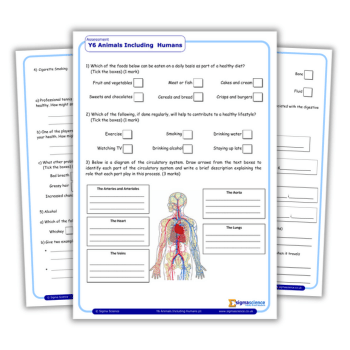Can a ‘Teacher Mediated’ Baseline Measure Ever be as Accurate and Consistent as we Need?

Julie Price Grimshaw explores the potential pitfalls of progress data

- by Teachwire

Recently, the education secretary announced plans for a new primary assessment system that, according to the press release, ‘focuses on pupil progress, mastering literacy and numeracy, and scrapping unnecessary workload for teachers.’
Admittedly, it’s not due to come into force next week – it will be 2023 before KS1 tests are non-statutory – but overall, what’s not to like? Especially the bit about reducing teacher workload (but more about that later).
One of the changes is a new ‘teacher-mediated’ assessment in the Reception year from 2020 to ‘provide a baseline measure to better track pupils’ progress’.
Sounds reasonable, but the next line is, ‘The check, which will be developed in conjunction with the teaching profession, will ensure schools are given credit for all the work they do throughout a child’s time at primary school.’
So it’s not actually been developed yet? And I have to admit to being slightly confused by the implication that schools are not currently given credit for all the work they do. By whom? Ofsted? A few years ago I inspected a lovely, happy school in a disadvantaged area. The school’s data showed that the children came into nursery well below age-related expectations and results at the end of Y6 were broadly average, so the crude overview suggested good progress overall.
In one of the meetings, the inspector who’d been looking at early years launched into an impressive eulogy. Apparently, the provision in nursery and Reception was truly exceptional.
Amazing things happened and children made outstanding progress in every area of learning, so much so that by the end of Reception they were exactly where they should be.
The headteacher beamed. One of the other inspectors said, “Hang on – if they are going into Y1 where they should be and coming out as average at Y6, surely the progress isn’t that good across the rest of the school?”
Seeing the change in the headteacher’s expression, I interjected with talk about looking at the big picture, professional judgements and it not being just about the data. The headteacher said, “If the excellent early years provision is going to downgrade the rest of the school, can you make it a bit less glowing?”
I’m happy to say that the school was rightly judged to be good with outstanding early years provision, but this experience made me think about the potential pitfalls when it comes to progress data, particularly with regard to assessing starting points.
It looks like the new Reception year measure is going to be extremely important, as it’s the baseline against which we will measure all subsequent progress.
The more important a measure is, the more vital it is that the assessment is as accurate and consistent as we can possibly make it.
Call me cynical, but I can see a problem with this straight away. If the measure is ‘teacher mediated’, how do we make sure it’s really accurate, not just within a school but across them?
This is a perennial problem and the answer is usually ‘moderation’, but we all know that this is not without its pitfalls.
The biggest challenge for those devising this measure must surely be to allow ease of assessment in applying criteria while ensuring accuracy and consistency.
Having sat through moderation sessions where experienced teachers argued for hours about which number or code went onto a sheet, I’m interested to see how this can be streamlined for accuracy.
It’s absolutely essential that it is, though; without an accurate starting point, every subsequent progress measure will be flawed. I worked in a school last year that was keen on simplifying assessment in order to reduce teacher workload.
‘Simplifying’ appeared to involve removing any subjectivity or professional judgement so that teachers could apply a criterion easily and quickly.
The enormous resulting document was described by one teacher as ‘APP on steroids’. It lasted one term.
I see so many references to reducing teacher workload. I wholeheartedly feel that this is a genuine priority, especially in terms of recruiting and retaining teachers. But in reality I’m not seeing it.
For example, so many schools are scared to take on board the recommendations of last year’s report on reducing unnecessary marking because they simply don’t believe that inspectors will approve.
I’m struggling to see how the proposed changes to assessment will reduce workload, particularly with the pressure of getting that starting point assessment absolutely right. But as it’s not actually been devised yet, we live in hope!
Julie Price Grimshaw is a teacher, trainer and education adviser. She has been involved in school inspections since 2001.











